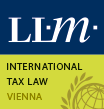Rick Krever
Professor at the University of Western Australia in Perth, Australia. He is a leading international tax scholar with a wide range of books and journal publications. He is well known in international tax circles. He was formerly a member of the Permanent Scientific Committee (PSC) of the International Fiscal Association (IFA) and has provided tax law and policy assistance to a number of international organizations, including the International Monetary Fund, World Bank, Asian Development Bank, and the United Nations. Professor Krever has been seconded to both the Australian Treasury and the Australian Taxation Office and has been appointed to a number of tax law reviews in Australia and in other countries, including reviews of the taxation of foreign-source income, capital gains tax, and business tax.Courses:
Australian Tax Law
This course provides an overview of Australian taxation law and tax law concepts. It serves as an introduction to common law tax concepts such as the role of discretionary trusts and the capital/revenue distinction common to almost all Anglo jurisdictions and contrasts those concepts with civil law understandings. It focuses on Australia's three most important Commonwealth taxes: goods and services tax (the Australian VAT), income tax, and fringe benefits tax and examines all three in in the context of similarities and differences between common law and civil law tax concepts and principles. It considers, for example, the Australian company and shareholder imputation system in contrast to the former European imputation systems and current classical system and contrasts the Australian and other modern VAT systems with the traditional European VAT. It similarly compares the regime used in Australia (and several other countries) to tax employee fringe benefits with the system used in Europe and North America and the system used to tax retirement savings with the European and North American system. Key aspects of Australia's international tax rules are also examined in the course and the tax treaty issue that arise in relation to potential double taxation of retirement savings, fringe benefits, and other types of income subject to different tax rules in Australia and its treaty partners.
Back to list

